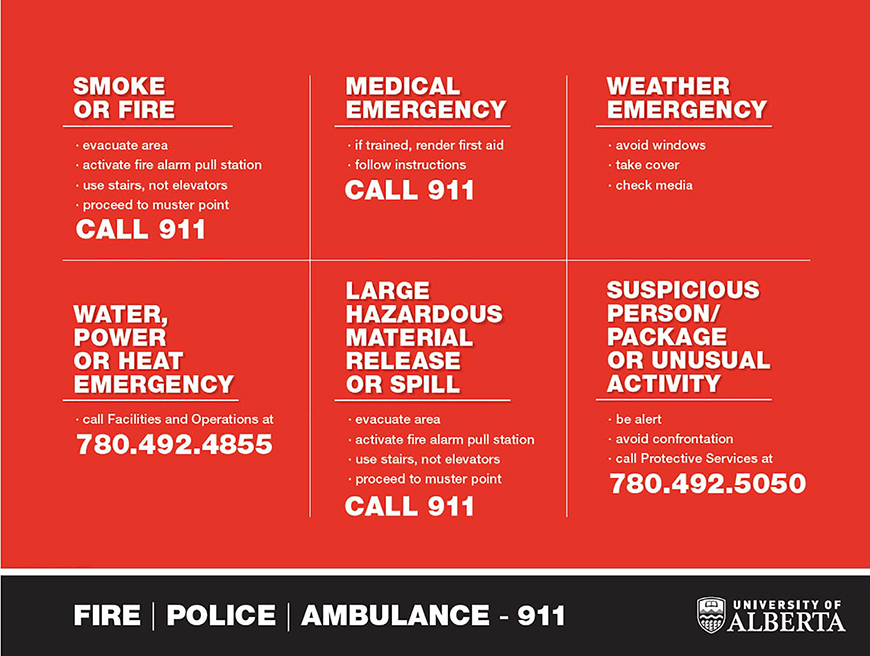Safety
Department Physics Safety Requirements
All faculty, students, staff and visitors should consult with their Supervisor, Principal Investigator, Lab Supervisor or Instructor regarding the appropriate training to safely perform their tasks and activities.
1. Acquire general training.
All personnel working in Physics need to take the appropriate online training offered by the University's Environment, Health and Safety (EHS) unit before starting work. To register, see http://training.ehs.ualberta.ca under the Environmental Health and Safety courses (CCID and password required).
Applicable courses include:
- Laboratory Safety, Chemical Safety;
- CCIS Fume Hoods;
- Hazardous Waste Management;
- Concepts in Biosafety;
- Radiation Safety;
- Workplace Hazardous Materials Information System (WHMIS); and
- Supervisor Professional Development
2. Acquire site-specific training.
Principal Investigators/Lab Supervisors for each lab may require that you take additional job-related training depending on the task or the specific site at which you will be working.
3. Know the required Personal Protective Equipment (PPE) for the task.
All Principal Investigators must conduct a hazard assessment to identify the hazards in their lab space and identify the most appropriate Personal Protective Equipment protocols to protect people working in the lab. All staff must know the PPE requirements for their work and wear the PPE.
4. Minimize risk when working alone.
Research or other tasks may require staff of students to be at the University outside standard working hours. Consult your supervisor for approval and decide on the ways you will minimize risk.
Did you know that Campus Protective Services (780-492-5050) offers the Lone Worker Program to enhance your personal safety? The service is available Monday to Friday from 10:00 pm to 7:00 am, and 24 hours during weekends and statutory holidays. Check out their website at: https://www.ualberta.ca/protective-services/services/lone-worker.
5. Report an incident.
Step 1: All incidents involving physical harm, safety violations or near-misses must immediately be reported to your supervisor or instructor.
Step 2: Then report to Environment, Health and Safety, possibly Organizational Health & Effectiveness and Alberta's Workers Compensation Board within 48 hours of the incident as per EH&S guidelines: www.ualberta.ca/environment-health-safety/report-an-incident.
Incidents include:
- Any incidents requiring first aid should be reported;
- Incidents involving Physical Harm (e.g. exposure or possible;
- exposure to hazardous materials, human blood or body fluid);
- Incidents involving safety violations are workplace scenarios that compromise university health and safety policy (e.g. unsecured gas cylinders, improper disposal of hazardous waste, property damage, theft/loss that exceeds $500;
- Near miss event is an incident that has the potential for serious injury, hazardous spill/release, or property damage.
If you don't know - please ask!
Email the Physics Safety Committee: physsafe@ualberta.ca.
